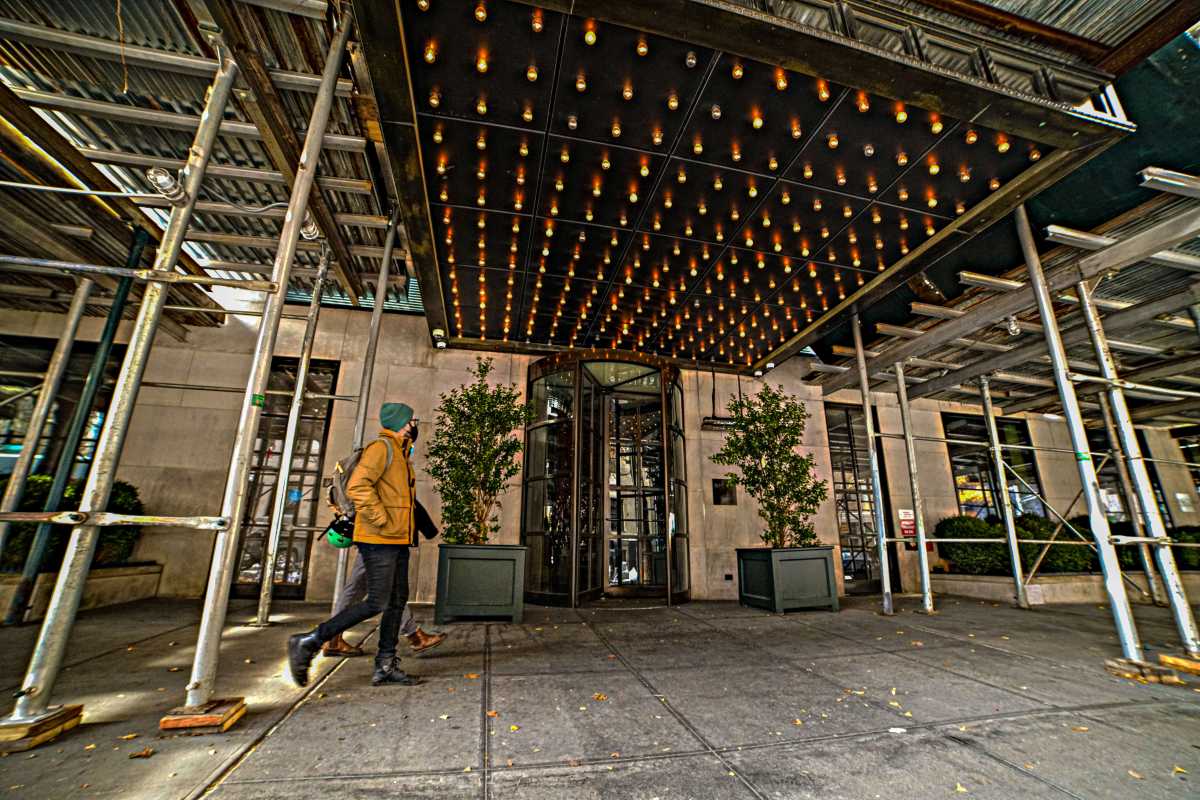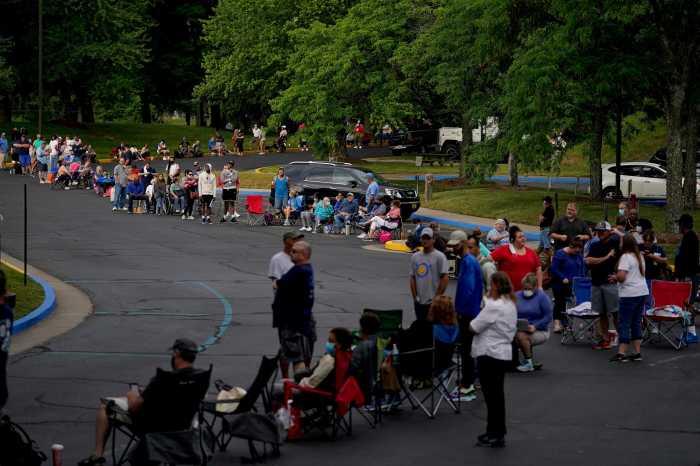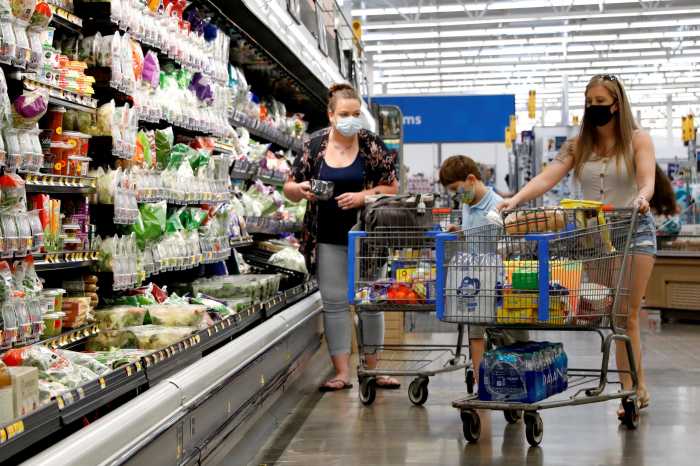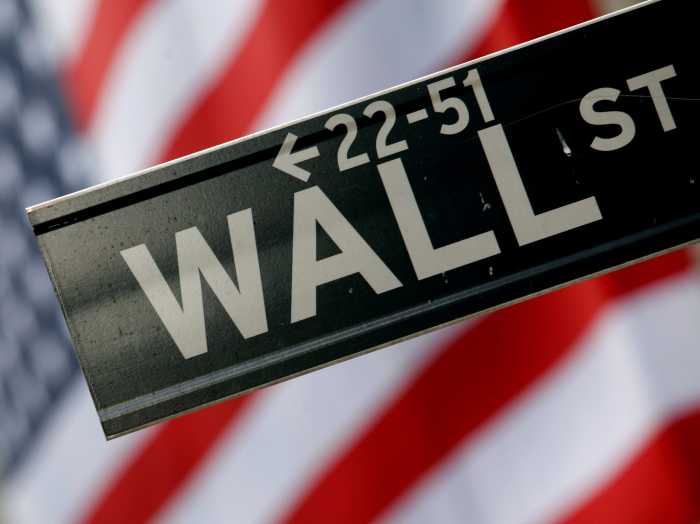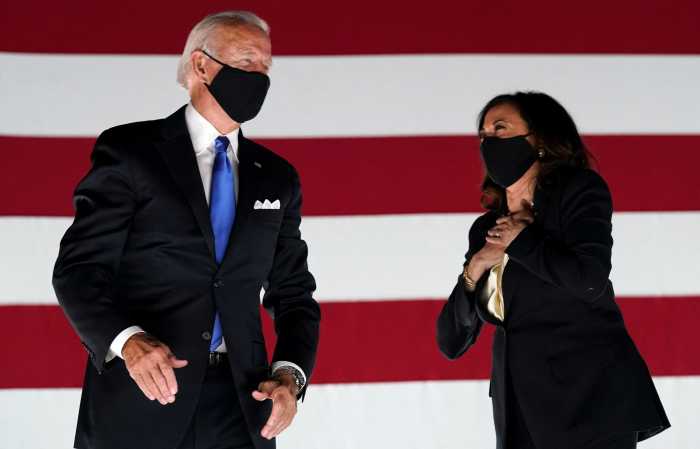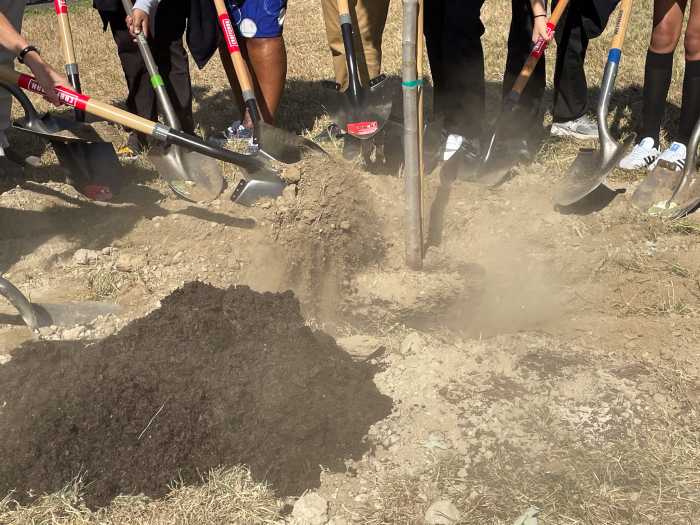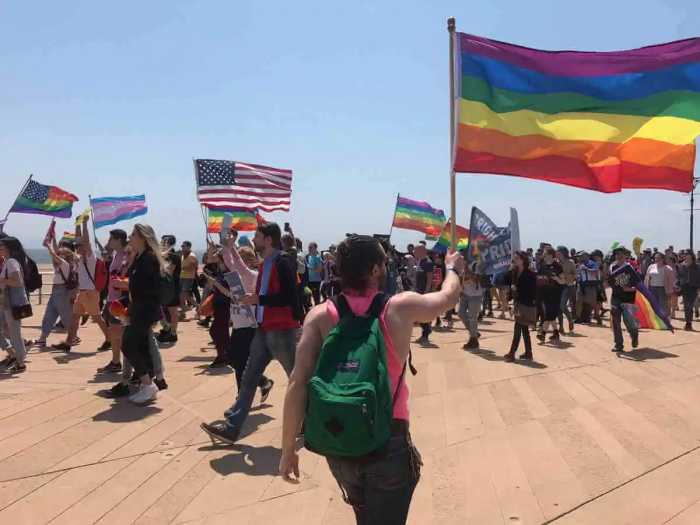Mayor Bill de Blasio credited the city’s Test and Trace Corps on Tuesday with aiding about 10,000 New Yorkers into self-isolating hotels during the pandemic who tested positive with COVID-19.
De Blasio said the hotels are also a great sign of recovery efforts in the tourism industry.
“The immediate issue of making sure someone needs to safely separate, they can get a hotel room for free, we’re going to continue that so long as we’re in the COVID crisis,” said de Blasio about the program’s future.
Test & Trace at NYC Health + Hospitals is a group of doctors, public health professionals and community advocates, headed by Director Amanda K. Johnson. They have been working to get COVID-19 and antibody tests out for free, trace those who test positive for COVID-19 and their close contacts who may have been exposed to the virus, and then safely relocate eligible people to a free hotel room.
Guests are picked up and dropped off in NYC yellow taxi cabs, given on site medical care, free Wi-Fi, and food during their stay. One Queens resident described the stay as a bizarre “staycation” with “cafeteria food” but quick and painless nonetheless, reported Conde Nast Traveler.
These Take Care Hotels, sometimes referred to as quarantine or COVID-19 hotels, have taken in a total of 11,551 individual guests from June 1, 2020 to Feb. 20, 2021.
“Second of all, I really do believe you’re going to see a strong comeback from the city economically, starting this summer. And, you’re going to see tourism actually start to revive during this summer, this fall, in a meaningful way. It’ll take awhile to get back of course to its full strength but I think a lot of hotels will start to refill up over time with their normal business,” added de Blasio.
The mayor may be right in that regard.
A few days ago, The New York Times reported a “growing optimism” among U.S economists watching for a “boom” and subsequent recovery after the COVID-19 crisis ends. This cautious hope, said The Times, is due to a number of factors like the fact that the economy was mostly stable before the pandemic hit, lawmakers and politicians have “responded much more aggressively to this crisis,” and rates of entrepreneurship have taken off recently.
De Blasio called the coronavirus “a wily enemy” that will require hyper-vigilance to overcome and recover from. He said there’s even a chance, once the pandemic fades, to convert some of the quarantine hotels into residential housing with a combination of market rate and affordable units if approved through the regular land use processes.
De Blasio went on to say that he does not, however, see hotels as part of the solution to the homelessness crisis. Upper West Side residents in Manhattan were famously split about having the homeless living in their community during the battle against COVID since many were relocated into local hotels last year. The Lucerne Hotel saw numerous protests for and against housing the homeless in hotels.
“What we want to do is get more and more people into affordable housing,” said de Blasio. “We don’t want to use hotels where we’re paying by the night.”



